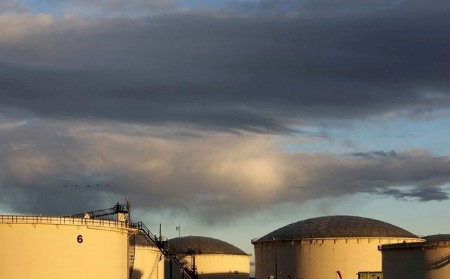




Policy Rate Updates: BSP outlook — cloudy with a chance of rate cut
 DOWNLOAD
DOWNLOAD

January Economic Update: Growth slows, prices rise
 DOWNLOAD
DOWNLOAD

Inflation Update: Up, up, and away?
 DOWNLOAD
DOWNLOAD


Oil rises on Saudi oil production expectations

LONDON, July 15 (Reuters) – Oil prices rose on Friday after a US official told Reuters an immediate Saudi oil output boost is not expected, with further support from indications that the US central bank could raise interest rates less aggressively than anticipated.
Brent crude futures for September delivery rose 76 cents, or 0.77%, to USD 99.86 a barrel by 0929 GMT while WTI crude rose 28 cents, or 0.29%, to USD 96.06.
The US Federal Reserve’s most hawkish policymakers on Thursday said they favored a rate increase of 75 basis points at its policy meeting this month, not the bigger increase traders had priced in after a report on Wednesday showed inflation was accelerating.
The interest rate uncertainty and weak economic data led to Brent and WTI shedding more than USD 5 on Thursday to less than the closing price on Feb. 23, the day before Russia invaded Ukraine, though both contracts clawed back nearly all the losses by the end of the session.
The US official’s comment on Saudi oil production comes at a time when capacity at members of the Organization of the Petroleum Exporting Countries (OPEC) is running low, with most producers pumping at maximum capacity.
US President Joe Biden, meanwhile, is visiting Saudi Arabia to attend a summit of Gulf allies and is expected to call for the region to pump more oil.
“[Biden’s] case will have been weakened significantly by the latest price rout,” said Stephen Brennock of oil broker PVM.
Analysts, meanwhile, expect to continued pressure on oil from concerns over the global economy.
“Brent has dipped noticeably below USD 100 per barrel this week. It is likely to continue sliding given that the recession fears will presumably not abate for the time being,” Commerzbank said in a note.
Bearish market sentiment has also followed renewed COVID-19 outbreaks in China, which have hampered a demand recovery.
China’s refinery throughput in June shrank nearly 10% from a year earlier, with output for the first half of the year down 6% in the first annual decline for the period since at least 2011, data showed on Friday.
(Additional reporting by Jeslyn Lerh in Singapore and Laura Sanicola in New York; Editing by David Goodman)
This article originally appeared on reuters.com





 By Reuters
By Reuters